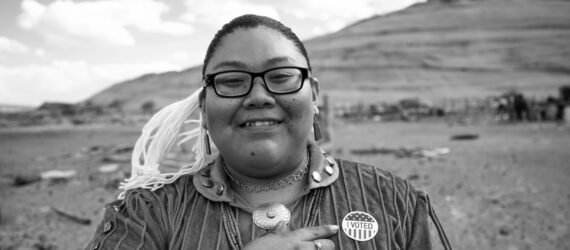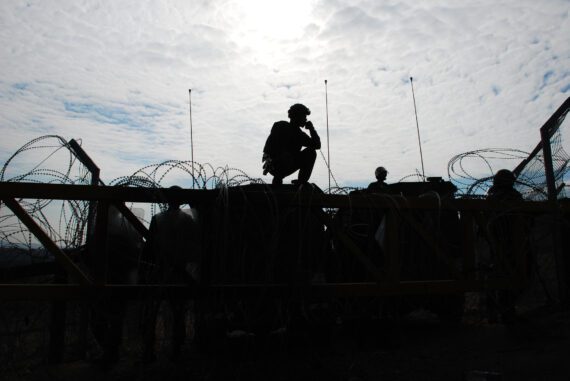By Abiola Afolayan
According to the U.S. Strategy to Prevent Conflict and Promote Stability Plan for Haiti, the country does not have a Women Peace and Security National Action Plan, and gangs target women and girls as a weapon of war, contributing to a rise in sexual and gender-based violence (GBV). Women and girls disproportionately face hunger and malnutrition worsened by danger to their physical safety. The people of Haiti and the world know that inaction can never be a viable option in the face of hunger, malnutrition, and physical and sexual violence.
Bread for the World acknowledges, along with the rest of the global community, that the larger context in Haiti is heartbreaking. On March 22, 2024, humanitarian officials published an update on the extent of the hunger emergency in Haiti, titled, “Gang Activity Drives Nearly 5 Million People Into High Levels of Acute Food Insecurity.” Additionally, an estimated 1.4 million people are living on the verge of famine.
The same day, March 22, CNN reporters in Haiti’s capital published disturbing videos and photos with a headline beginning “Carnage on the Streets of Port-au-Prince…” The language is unusual for a news report: “Haiti’s capital has been trapped in a gory cycle… An insurgent league of heavily armed gangs is waging war on the city itself… Much of the Haitian state has disintegrated, its courts occupied by gangs, its prisons left open, the prime minister effectively exiled…”
The most recent spate of violence means women and girls will be affected by the violence and destruction. According to the U.S government, civil unrest, political instability, failure to respect the rule of law, and lack of economic opportunity are contributing to high rates of GBV in Haiti, with one in three Haitian girls and women ages 15 to 49 reporting physical and/or sexual violence. Reports indicate that rape, sexual assault, and harassment occurred with impunity even before the recent rise in gang activity, and survivors are frequently blamed for the rape and abuse they endure.
As it relates to women, peace, and security integration into the political infrastructure of Haiti, women are chronically underrepresented in decision-making roles and have been left out of key judicial, administrative, legislative, and democratic systems, with only 11.5 percent of the judiciary and 3 percent of parliament seats currently filled by women. Haiti ranks 187th out of 190 countries in terms of women’s political representation (190 is the lowest). The lack of Haitian women having a seat at the leadership table imperils peace and security for everyone. Insecurity traumatizes people and communities.
However, local women’s groups remain a major pillar of resilience in Haiti, notwithstanding the dangerous and chaotic situation around them. It is critical to center the rights of women and girls and provide them with essential forms of support, including economic, psychosocial, nutrition, relocation assistance, and other necessities. UN Women is working with various local organizations, with the support of the UN Peacebuilding Fund, to carry out this work.
The Peacebuilding Fund has supported projects in Haiti that reached thousands of women and girls, connecting them with the tools they need to build stronger livelihoods, such as training in agricultural best practices, running a business, gender equality, and women’s leadership. Support from the Women’s Peace and Humanitarian Fund and local partners also brings hope and has given some women an opportunity to rebuild their lives after surviving gender-based violence, hunger, and other traumas.
One such initiative is the Strategic Support Unit for Agricultural Development (CASDA) program, which focuses on empowering women who have survived gender-based violence. The program provides counseling, workshops on empowerment and women’s rights, and training aimed at strengthening their resilience and economic independence.
One program participant explained, “My life was filled with fear and uncertainty. The violence I suffered left me without hope,” she said. “But thanks to the opportunity provided by CASDA, I was able to start my own small business. Today, I am proud to say that I am financially independent and that I can provide for the needs of my family.”
“This project has given me confidence in myself and in the future,” she said. “I am grateful to all those who have made this possible.”
These stories of hope where women thrive and enable their families and communities to thrive, even in the most difficult circumstances, remind us that programs that promote food security, personal safety, and resilience remain important. Inaction is never a viable option.
The World Food Programme (WFP), with the support of Food for Peace and other supplemental humanitarian resources, provides lifesaving food aid in Haiti. However, WFP indicated that it needs financial and other support from leaders such as the United States to help meet funding needs. In order to continue to implement its lifesaving operations in Haiti, WFP is seeking at least an additional $95 million.
Haiti is a near neighbor of the U.S., and saving the lives of people who are unprotected from extreme violence and acute food insecurity is key for our national and economic interests, and it is a bipartisan moral imperative.
Abiola Afolayan is Co-Director, Policy and Research Institute, at Bread for the World.



